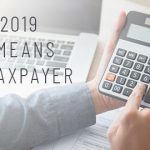Income Tax Allowances
There are 4 key types of income tax allowances that apply to all citizens in the UK which allow you to offset paying tax on your income with simple allowances. Most people may know about the ‘personal allowance’ but there are more allowances which are specifically designed to give tax relief to certain individuals.
Personal Allowance
This is the main type of tax allowance which is applicable to everyone in the UK – no matter how much you earn. This allowance is £11,000 (2016-17) which simply means you can earn up to this amount without paying ANY tax on it – happy days! The moment you go over this amount, you will pay tax on that income which is then separated into different tax rates and can be seen in my previous blog here.
Marriage Allowance
This quite simply allows you to transfer up to £1,100 of your personal allowance to your husband, wife or civil partner. However there are a few stipulations to this allowance:
- You must be married or in a civil partnership
- It only applies to the person who is on the lowest income within that relationship to transfer the amount
- The lowest earner must be earning an income of £11,000 or less
- The higher earner can only be on an income between £11,001 and £43,000
It’s basically designed to allow the partner who isn’t using their full personal tax allowance, to transfer the remainder of that allowance to their partner to help offset some tax, saving you up to £220 in tax every year – so it’s definitely worth registering if your situation falls under this category. To apply for this allowance – click here.
Married Couple’s Allowance
Firstly, this is not to be confused with the ‘Marriage Allowance’ since they are totally different allowances. So with that said, what is the ‘Married Couple’s Allowance’? Well this is a simple allowance that can save you paying up to £835.50 in tax every year! However it is only eligible if one of the partners in the relationship was born before April 6th 1935 (81 years old as of 2016 to save you working it out!) so isn’t applicable to all marriages or civil partnerships. However if you are married and one of you was born before that date then this could definitely apply and be beneficial to you! You can apply if:
- You’re married or in a civil partnership
- You’re living with your spouse or civil partner
- One of you was born before April 6th 1935
So if they all apply to you then definitely take advantage of this allowance, this is done by simply filling in the ‘Married Couple’s Allowance’ section on your self-assessment tax return, or if you don’t fill one in each year just contact the HMRC here with all relevant details about your marriage/civil partnership.
Blind Person’s Allowance
This allowance does exactly what it says on the tin, if you are registered blind then this is added to your personal allowance and allows you to earn more before you start to pay tax. The amount is £2,290 which means as a blind person you can earn £13,290 before you pay any tax on your income – it’s as simple as that! To claim for this allowance just click here.
There are a few points to add, if you are in a marriage/civil partnership and you are both blind then you will both receive this allowance and also if the blind partner doesn’t earn enough to pay tax then (earning under £11,000) then they can transfer this allowance to their spouse/civil partner.














Share On